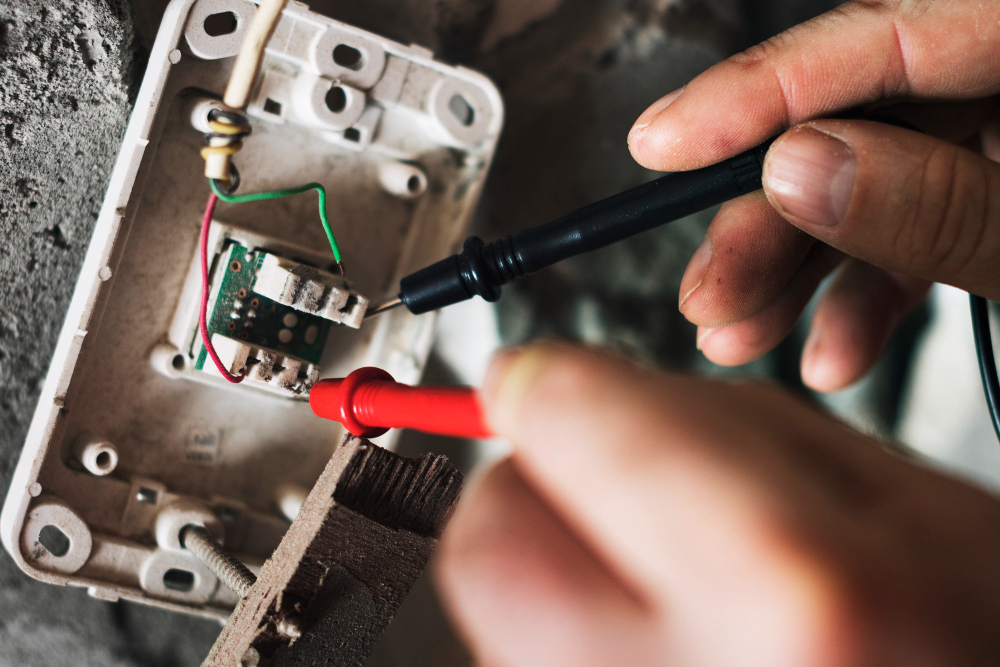The Comprehensive Guide to Miniature Circuit Breakers
Table of Contents
Toggle
A Miniature Circuit Breaker, commonly known as an MCB, is an electromechanical device designed to protect electrical circuits from overcurrents, short circuits, and electrical faults. It acts as an automatic switch that interrupts the flow of electric current in the event of abnormal conditions.
Types of Miniature Circuit Breakers
- Single-Pole MCB
A single-pole MCB is designed to protect a single phase of an electrical circuit. It is commonly used in residential and commercial applications where single-phase power is prevalent.
- Double-Pole MCB
A double-pole MCB provides protection for both the live and neutral wires of a circuit. It is commonly used in applications where a higher level of protection is required, such as for larger appliances or circuits that require a higher current capacity.
- Triple-Pole MCB
A triple-pole MCB is designed to protect three-phase circuits. Three-phase power is commonly used in industrial and commercial applications where higher power loads are required.
- Residual Current Circuit Breaker (RCCB)
An RCCB, also known as a residual current device (RCD), is a type of MCB that provides additional protection against ground faults. It detects and interrupts electrical currents that flow through unintended paths, such as when a person comes into contact with an exposed wire or a faulty appliance.


Functions of Miniature Circuit Breakers
- Overcurrent Protection
One of the primary functions of an MCB is to protect against overcurrents. It monitors the flow of electric current within a circuit. When the current exceeds the rated limit of the MCB, it quickly interrupts the circuit, preventing potential damage to wires, cables, and electrical devices.
- Short Circuit Protection
MCBs play a vital role in safeguarding electrical systems against short circuits, which occur when there is a direct connection between the live and neutral wires. In the event of a short circuit, the MCB detects the sudden surge in current and trips instantaneously, isolating the faulty circuit from the power supply.
- Overload Protection
MCBs provide protection against prolonged excessive currents, known as overloads. Overloads occur when the current drawn by electrical devices exceeds the safe operating limit of the circuit. When an overload is detected, the MCB trips to disconnect the circuit from the power source, preventing overheating and potential damage to wires, cables, and appliances.
- Ground Fault Protection
Some MCBs are equipped with additional ground fault protection, also known as residual current protection. MCBs with ground fault protection detect these imbalances in current and rapid trips, preventing electric shocks and ensuring the safety of individuals in contact with the electrical system.
- Sensitivity and Selectivity
MCBs are designed with different sensitivity levels, allowing them to respond accurately to specific current thresholds. They are also designed to have selective tripping capabilities, which means that in the event of a fault, only the affected circuit is isolated while other circuits remain powered.
Applications of Miniature Circuit Breakers
MCBs find widespread use in residential, commercial, and industrial settings. They are integral components in electrical distribution panels, switchboards, and consumer units. MCBs are commonly employed in the following ways:
- Commercial establishments
- Construction sites
- Data centers
- Educational institutions
- Healthcare facilities
- Industrial facilities
- Outdoor installations
- Renewable energy systems
- Residential buildings
- Transportation sectors
Conclusion
Miniature Circuit Breakers (MCBs) are essential components in electrical systems, providing protection against overcurrents and electrical faults. When seeking reliable MCBs, TOSUNlux emerges as a trusted manufacturer, delivering high-quality products with advanced features. Consider TOSUNlux as your go-to solution for reliable MCBs that prioritize safety and performance in diverse electrical applications.
Tel: +86-577-88671000
E-mail: ceo@tosun.com
Skype: tosunelectric
Wechat: +86-139 6881 9286
WhatsApp: +86-139 0587 7291
Address: Room No.1001 Wenzhou Fortune Center,Station Road, Wenzhou, China
REQUEST A QUOTE
WhatsApp us
 : +86-139 0587 7291
: +86-139 0587 7291 English
English Español
Español Русский
Русский Français
Français العربية
العربية Português do Brasil
Português do Brasil Українська
Українська Türkçe
Türkçe Polski
Polski Nederlands
Nederlands Italiano
Italiano Bahasa Indonesia
Bahasa Indonesia हिन्दी
हिन्दी اردو
اردو አማርኛ
አማርኛ Հայերեն
Հայերեն ไทย
ไทย Монгол
Монгол فارسی
فارسی Shqip
Shqip Ελληνικά
Ελληνικά


